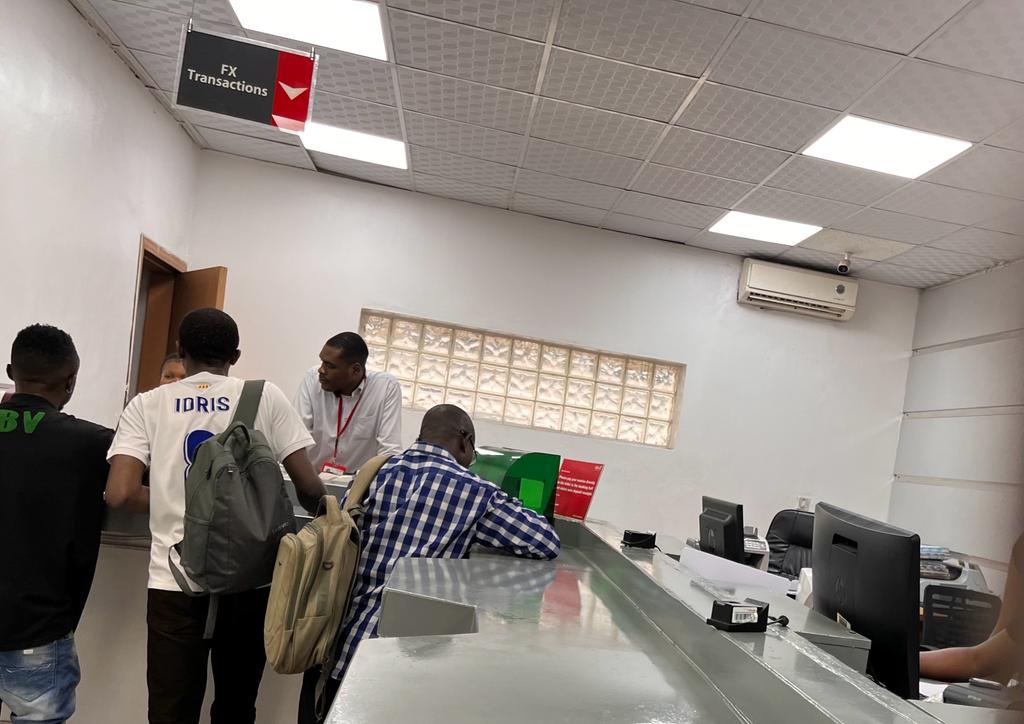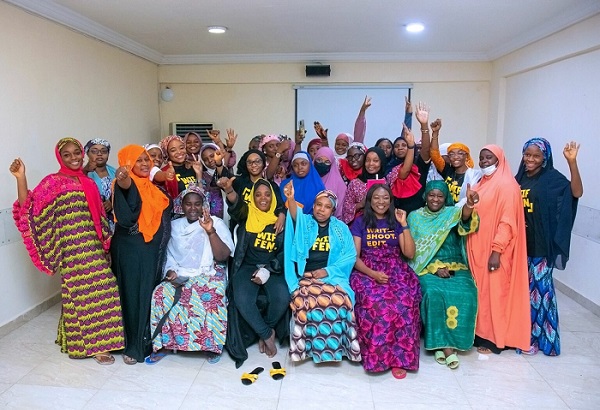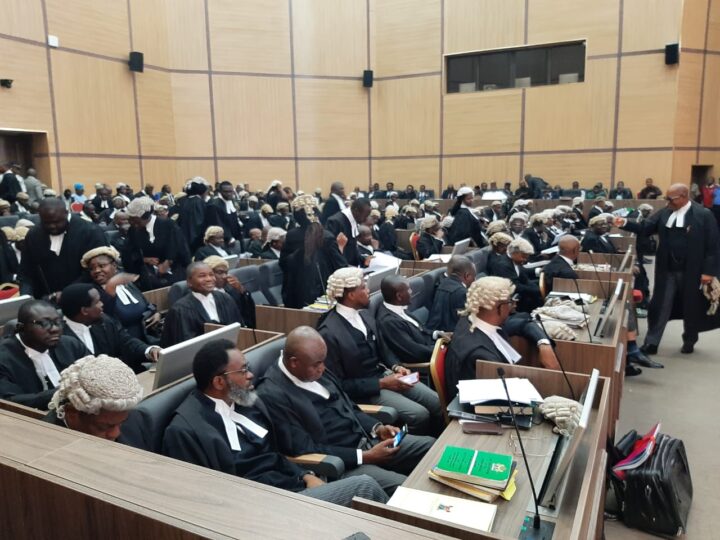No. Our President, Muhammadu Buhari, is not wicked. He will not deliberately sanction a policy that plunged the nation into penury and release the people to the streets to wander like homeless zombies without a hope for tomorrow.
This couldn’t be his idea of a cashless policy or even a Naira redesign variant that will take cash away from the people and make them nocturnal denizens of banks that ordinarily should operate in the day time. This couldn’t be anybody’s good idea. To go to the banks and see desperation in the eyes of a people that could literally ignite a fire.
Was this the kind of situation that late Festus Iyayi foresaw in 1979, which gave birth to his first novel, Violence; the kind of poverty that could make people literally feast on each other just to survive for another day? If there was desperation then, the desperation is epidemic today.
This couldn’t be the projection of the Central Bank governor, Godwin Emefiele, who, although very subdued now, was very rambunctious about his new policies; how even the locals in the villages could walk with a swagger with bank cards in their pockets and go about doing electronic transactions even in the countryside that never hosted a telecom base station.
Advertisement
No. Emefiele doesn’t cut the image of the Sphinx of Giza, appropriately described as half man half beast. He was just doing a job, trying to bake policies that could mean well for the nation except that churning out these policies without a comprehensive impact analysis could turn humans into guinea pigs for half-baked monetary experiments.
Both Buhari and Emefiele were sure that the policies would bring sanity to the money sector; cut waste and corruption, curb insecurity, banditry and ransom taking, knock down inflation which still enjoys runaway status, check the propensity to move about with large volumes of cash, and even do unsavoury deals, and even more immediate, check the ability of the politicians to buy votes in the ongoing elections.
Weighed on the strength of the last pillar, vote buying, there is no gainsaying that the policies have failed very miserably. Although the Presidential election is nearly in the bag, the disputations are intense and both local and foreign observers, and even politicians, agree that INEC has done Nigeria a very bad one; the worst ever.
Advertisement
Who really is a government policy designed for? The people or the government or just for a few fat maggots? What is the meaning of a policy designed without a heart for the people? Is it baked from the heart of wickedness or incompetence? Could it be both, combined?
I am in the bank on this very day and my thoughts are overwhelming. I could only get in on the wings of residual goodwill. And here I am watching the milling crowd outside who don’t even know that somebody is watching them from within. Watching their frustrations and desperations and actually just afraid when this would get to a breaking point. Sensing my riveted attention at the crowd outside, the security man told me, “Oga, some of these people got here by 2am in the night. Yet, there is no money for them! No. No money for any of us”
When I left the bank that fateful day, I decided to seek answers from those who should know. I called the telecoms regulator and a couple of operators to throw light into my dark tunnel of ignorance. What really is happening in the banking sector? Why are services comatose?
Quite interestingly, sources from the Nigerian Communications Commission (NCC) and the telecommunications industry spoke nearly in the same words. I am not sure they had a meeting or a rehearsal for this.
Advertisement
Remember, we said the Central Bank governor, Emefiele, is not a wicked man. My sources didn’t say so either. But this they said. The monetary policy of Naira redesign came so suddenly on the banks that they were least prepared for what has hit them. What this signifies is that the Central Bank may not have worked so closely with the banking industry in order to prepare them for what was coming their way.
The operators said their networks are robust and ready for whatever load that may come on the networks, but the same cannot be said of the banks. The fact that subscribers are still able to enjoy their internet connections, send messages and make WhatsApp and FaceTime calls without glitches (permit me to borrow that word from INEC) means that the networks are strong enough for whatever services that may come their way. But not so for the banks.
“What is happening is that the banking sector is overwhelmed. Their systems were not dimensioned to carry the kind of traffic occasioned by Naira redesign policy,” an NCC source said, adding that the banks who host their technology outside of the telcos should optimise their servers to cope with the new industry demands.
My sources were really irked that the people more impacted upon by the government policies are the small workers out there, the artisans and others who work for daily pay, people who have no business with electronic money transfer or banking halls, people who have, within the period, almost been obliterated by the new policies. What is happening before our very eyes, is that a helpless segment of the informal economy has nearly been decimated.
Advertisement
While capacity remains at the heart of what is ailing the banks, both in technology and human capital, an NCC source captured it more appropriately, when he said that the Japa syndrome has hit the banking sector so badly that it will take them years to build up capacity to fill the gaps so opened up.
I am told that Japa is a Yoruba word that means taking a flight for greener pastures. Although there was a steady growth of the number of professionals leaving Nigeria for greener pastures abroad, the situation became rampant under the Buhari administration when droves of doctors and IT specialists ran away from the country to offer their services where they would be best appreciated and paid for.
Advertisement
In one of those moments, the Minister of Labour, Dr Chris Ngige, in a fit of anger, had said that the doctors could leave as the nation has enough doctors to cater for her citizens. There was outrage because those who go to Nigerian hospitals see and experience something contrary.
The banking sector, like Ngige, cannot display the effrontery of saying its IT specialists could leave as it lacks the capacity for a refill. “The banks have lost IT staff that they cannot easily replace. The skill set is a big problem. It is a big challenge that should urgently be addressed,” the source said.
Advertisement
Although there is an insipid development, of the Central Bank conceding to the banks to accept old notes after weeks of trampling on a Supreme Court judgement, the damage seems to have been done irretrievably. The banks have lost the trust of their customers; and their situation grows precarious when there is every reason to believe that the CBN will pursue its cashless policy to an unreasonable end.
What should be done in the immediate? An industry source told this writer that the problem lies with the banks. They should think less of profit now and spend money in recruiting and training competent IT staff, expand the capacity of their servers and sit with telcos to discuss their challenges. They should also understand that this is a major crisis situation and learn to communicate with their customers on what to expect from the various platforms or even when the situation can begin to improve.
Advertisement
Somebody even suggested that the banks can outsource some of their challenging operations to specialised technology firms after the twin issues of trust and safety have been dealt with.
But for the time being, Nigerians need a reprieve, both from their banks and their government. They are not wrong in expecting to be treated decently, as human beings.
Views expressed by contributors are strictly personal and not of TheCable.
Add a comment







